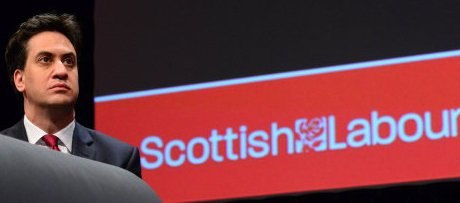Ed Miliband is resisting pressure to rule out making any post-election deal with the Scottish National Party that would give him the keys to Number Ten.
That’s because he may see such a deal as offering him his only chance. Neither he nor David Cameron seem to have much hope of leading the country without the support, in one form or another, of parties other than their own. So some deals are going to have to be struck. Who should do a deal with whom?
For a long time now opinion polls have shown that neither the Conservatives nor Labour stand more than an outside chance of winning an outright majority in May. That means that if Britain is to emerge from it with anything like a stable government a deal of some sort is going to have to be made by at least two of the parties in the new parliament.
One possibility is a repeat of what happened five years ago: a coalition government in which ministers are chosen from two parties and those parties commit themselves to supporting the government in the House of Commons on all agreed measures. Alternatively, one or more of the smaller parties could commit to sustaining one of the bigger parties in power as a minority government by agreeing to back the government in votes of confidence and over the budget. It would expect concessions and would retain the freedom to defeat the government on specific measures. This is the so-called’ confidence and supply’ deal.
Such deals will be hammered out after the election once the verdict of the voters becomes clear. But what parties have to say now is almost as important as what they decide then, because their attitudes to deal-forming may well affect the way we vote.
In recent days the heat has been on Ed Miliband and that’s because of a major development few foresaw even as recently as last autumn: the rise of the SNP as a serious electoral force at Westminster. Although they lost the referendum on Scottish independence, the SNP managed to persuade 45% of Scottish voters to its cause and that has led to a surge in support for the party. There has not only been a huge influx of new members, but also a massive switch in support from Labour to the SNP.
With only two months to go to polling day there is little sign of this remarkable change in political fortunes being reversed. On current polling evidence, the SNP is likely to increase its representation at Westminster from six to more than forty seats, probably making it the third largest party in the House of Commons. By contrast, Labour could see its current tally of forty-one seats reduced to a handful. Such has been Labour’s reliance on Scottish seats to provide it with a majority in the UK Parliament that their loss would all but remove any hope of Labour emerging as an outright winner.
So the SNP would be in a powerful position as king-maker. They have already ruled out doing a deal of any sort with the Conservatives – and Mr Cameron has made clear he wouldn’t want one anyway. But the SNP has gone out of its way to say it would be more than ready to support a minority Labour government that was prepared to offer the Scottish Parliament greater powers than those that have been on the table since the referendum. It has even said it might “allow” a Labour Government to maintain some sort of submarine-based nuclear deterrent in Scottish waters - even though the SNP’s own policy is to get rid of it.
The temptation for Ed Miliband is obvious: on current polling evidence it is hard to see how else he could become prime minister. Yet many Scottish Labour MPs want him to rule this out and it’s not hard to see why. So long as such a deal remains a runner, anti-Tory Scottish voters will not feel they have to vote Labour to keep the Conservatives out. Instead, they can vote SNP confident that SNP MPs will back a minority Labour government instead.
Labour MPs desperate to hang on to their seats want to be able to say that only by voting Labour can Scotland avoid the fate of another Tory-led government in London.
Ed Miliband’s refusal explicitly to rule out a deal with the SNP is not only upsetting many of his own MPs but is giving the Tories a field-day. They have onlhy one seat in Scotland and no-one expectrs them to collecrt any morte on May 7th, so their focus instead is on the impact of all this on English voters. That’s why they are blitzing key English constituencies with posters showing a tamed Ed Miliband in the pocket of an all-powerful Alex Salmond. The intention is to scare voters who are considering abandoning the Tories (or indeed the Liberal Democrats) for Labour to think again. David Cameron’s message is that we can’t have someone who wants to break up the United Kingdom with his hands on the government of the United Kingdom.
But the Tories too face problems in putting together a stable government. If the polls are right their current coalition partners, the Lib Dems, will lose around half of their fifty-seven seats, with the result that the two parties together may not have enough seats to form a majority. Even if they do, there is no certainty that the coalition agreement could be renewed. The Lib Dems, electorally punished for their participation in the coalition government, may well feel it’s a case of once bitten, twice shy. And nor is it certain that the Tory Party would let David Cameron sign another deal with the Lib Dems. Many Tory MPs, especially on the right, have felt thwarted by the Lib Dem veto on policy and would prefer to carry on as a minority government even with the risk of falling at an early hurdle.
Normally such a defeat would lead to a second election. But that is not so easily done these days, because five-year parliaments are now enshrined in law. Elections can be called before the five years are out only if two thirds of MPs vote for it. Such a result cannot be assumed.
So there is another idea being broached for breaking the likely logjam after the election: a grand coalition between the Conservatives and Labour. This has been floated by, among others, Lord Baker, a former home secretary and Tory Party chairman. His main argument is that this may be necessary to save the union because it may be the only way to neuter the power of the SNP in the next House of Commons. Others point out other advantages. Whoever is in power after the next election is going to have to go on cutting public spending in order to reduce the deficit and although this is the subject of intense election point-scoring before the election, a coalition between the two parties may make it easier afterwards.
What seems overwhelmingly likely is that the parties are going to have to do deals with each other. The big question is who with whom? What’s your view? Should Ed Miliband rule out a deal with the SNP or not? Does it worry you that the SNP, which wants to break up the UK, could have a hand in running the Westminster government? In general, would you prefer a new coalition government or one of the two main parties running a minority government supported by one or more of the smaller parties on a ‘confidence and supply’ basis? And do you think a grand coalition between the Tories and Labour is a good idea or not?










